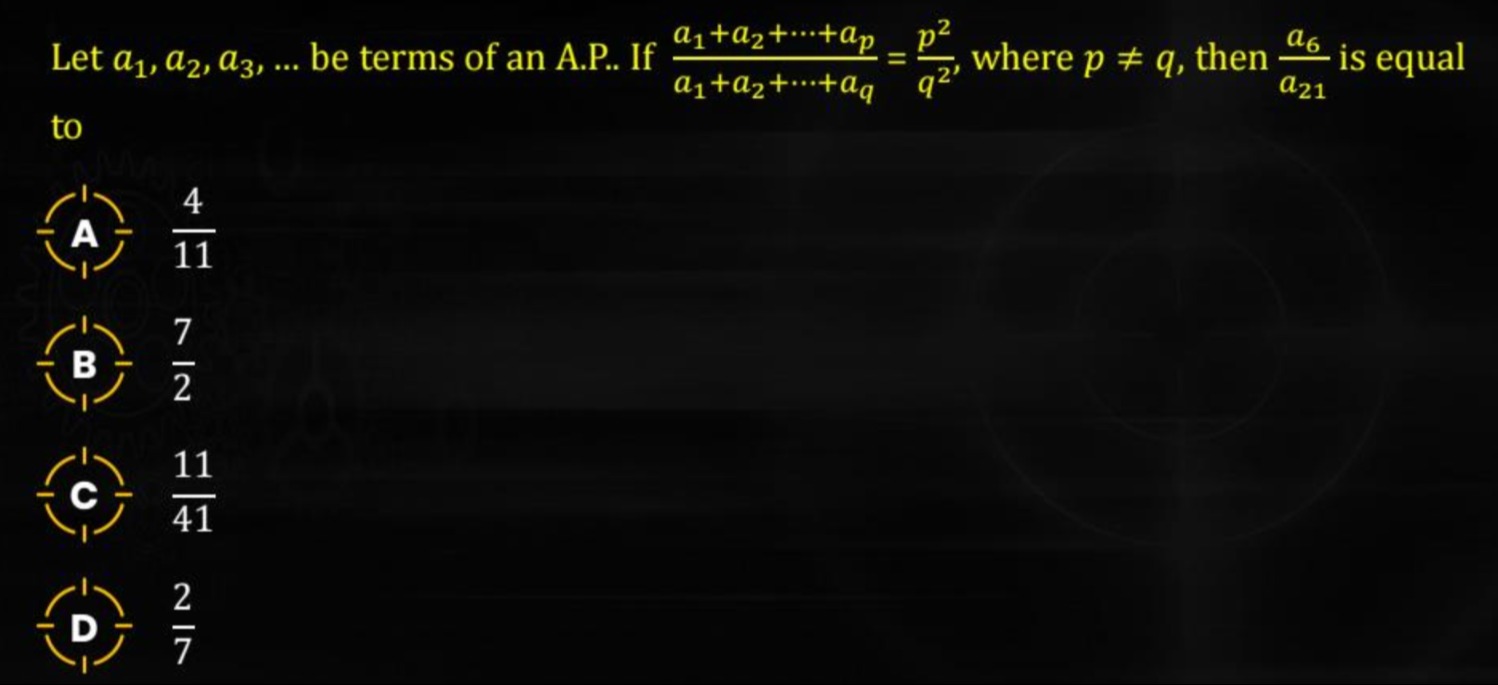Question
Question: Let $a_1, a_2, a_3, ...$ be terms of an A.P.. If $\frac{a_1+a_2+…+a_p}{a_1+a_2+…+a_q}=\frac{p^2}{q^2...
Let a1,a2,a3,... be terms of an A.P.. If a1+a2+…+aqa1+a2+…+ap=q2p2, where p=q, then a21a6 is equal to

11/41
21/6
6/21
41/11
11/41
Solution
Let a be the first term and d be the common difference of the Arithmetic Progression (A.P.). The sum of the first n terms of an A.P. is given by the formula: Sn=2n[2a+(n−1)d] We are given the relation: a1+a2+⋯+aqa1+a2+⋯+ap=q2p2 Substituting the sum formula, we get: 2q[2a+(q−1)d]2p[2a+(p−1)d]=q2p2 q[2a+(q−1)d]p[2a+(p−1)d]=q2p2 Since p=q, we can assume p=0 and q=0. We can simplify the equation by cancelling p from the numerator and p2 from the right side, and q from the denominator and q2 from the right side: 2a+(q−1)d2a+(p−1)d=qp Cross-multiplying gives: q[2a+(p−1)d]=p[2a+(q−1)d] 2aq+q(p−1)d=2ap+p(q−1)d 2aq+pqd−qd=2ap+pqd−pd Subtracting pqd from both sides: 2aq−qd=2ap−pd Rearranging the terms to group a and d: 2aq−2ap=qd−pd 2a(q−p)=d(q−p) Since p=q, we know that q−p=0. Therefore, we can divide both sides by (q−p): 2a=d This establishes a relationship between the first term and the common difference.
Now we need to find the ratio a21a6. The n-th term of an A.P. is given by an=a+(n−1)d. So, the 6th term is a6=a+(6−1)d=a+5d. And the 21st term is a21=a+(21−1)d=a+20d.
Substitute the relation d=2a into the expressions for a6 and a21: a6=a+5(2a)=a+10a=11a a21=a+20(2a)=a+40a=41a Now, we can find the ratio: a21a6=41a11a Assuming a=0 (otherwise all terms would be zero, making the original ratio undefined), we can cancel a: a21a6=4111
Alternatively, we can use the property that if SqSp=q2p2 for an A.P., then anam=2n−12m−1. In this case, we need a21a6, so m=6 and n=21. a21a6=2(21)−12(6)−1=42−112−1=4111
